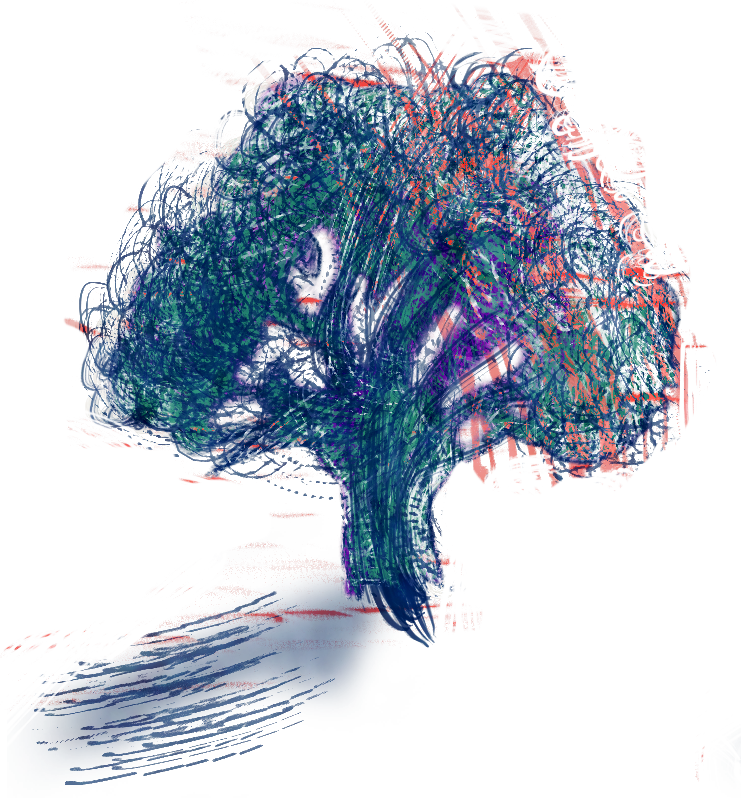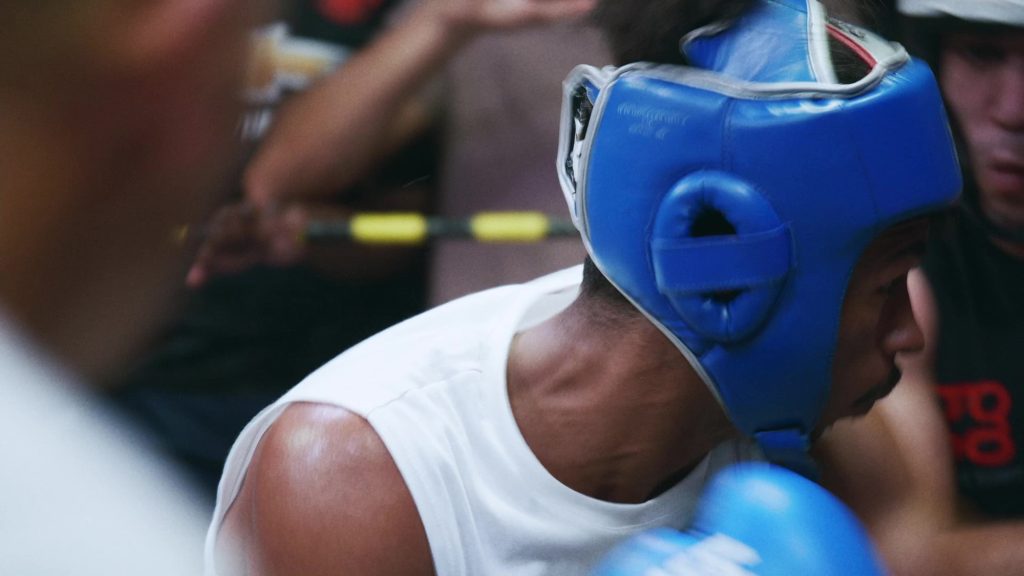Dernier verre avec La Lutte est une fin
Entretien avec Arthur Thomas–Pavlowsky, réalisateur de La Lutte est une fin

En participant au mouvement Nuit Debout contre la loi travail, puis plus tard en militant à Calais, j’ai été victime et témoin de violences policières. Souvent tétanisé face à celles-ci, je ressentais le besoin de m’éduquer à prendre des coups et à en donner. En arrivant sur Marseille, j’ai donc eu envie de passer le cap. Des amis m’avaient parlé du Collectif Boxe Massilia qui, à l’époque, donnait des cours de boxe anglaise à prix libre dans une maison pour tous, à côté du cours Julien à Marseille. Dès le premier cours j’ai été empreint par l’atmosphère qui régnait dans la salle. De l’adolescent tout juste sorti de sa journée de lycée au cinquantenaire qui revient de son travail, les gens se rencontraient en apprenant l’art de se frapper. Ce qui a concrétisé mon envie de documentaire, c’est la volonté du collectif de revendiquer une boxe prolétarienne. Cette ligne politique les a amenés à créer un lien avec le comité Chômeurs et précaires de la CGT 13. La CGT a alors accueilli dans la bourse du travail le collectif à venir boxer. Pour moi, leur enseignement de la boxe n’est pas simplement un exutoire, il est un acte de résistance. Il permet à des individus de prendre confiance en eux, de s’affirmer et de lutter contre des oppressions vécues. Les personnes du collectif ne font pas que pratiquer la boxe anglaise, ielles en parlent et en font un objet de lutte.

Je crois que je préfère le mot “rencontre” qu’“approche”, je le trouve plus juste dans ce que j’ai vécu. Dans un premier temps, je cherchais juste à apprendre la boxe. Dans un second temps, j’avais très envie de filmer le collectif et l’apprentissage de la boxe. J’ai demandé à Jules un des créateurs du collectif si je pouvais faire un documentaire sur elleux. Il a dit oui tout de suite. C’était le point de départ. Ce qui a été long, c’était de partager avec elleux ce que je voulais faire. Je n’étais pas au clair avec mes intentions, c’est mon premier film. Il a fallu plusieurs temps de rencontres et d’échanges avec Maho, Marvin ou d’autres qui sont moins présents dans le film. Je voulais être le plus transparent possible sur mes intentions, qu’ielles se reconnaissent et se l’approprient. Parfois, nous ne partagions pas les mêmes idées, ou les mêmes envies de films, ça a toujours mené à des moments d’échanges qui ont nourri le film.


Le GREC m’a permis d’aboutir à mon film. Cela faisait deux ans que je travaillais dessus, et au moment où j’ai appris que j’étais lauréat je cherchais des sous à droite à gauche pour autoproduire ce film. C’était donc soulageant et très grisant à la fois. J’ai pu faire ce film juste après ma sortie d’école et avec presque exclusivement des ami.es du master. Pour moi c’était un moyen de continuer à construire notre cinéma ensemble, en collectif. Avoir le GREC, c’était aussi pouvoir expérimenter de manière professionnelle tout en gardant la liberté totale sur mon sujet. C’est ce qu’il y a d’unique dans cette institution : on m’a conseillé, mais c’était toujours moi qui avait le dernier mot.

Pour moi c’est trop compliqué de donner un court métrage de référence… Je n’arriverais pas à choisir. J’aime beaucoup être en festival et regarder de nombreux films, mais je suis rarement capable d’en sortir un du lot. Plus je vois de films, plus je les prends comme des œuvres singulières qui me nourrissent différemment en fonction de ce qu’elles sont. Par plaisir d’en parler, le film Le Temps des bouffons de Pierre Falardeau fait partie des courts métrages historiques qui font référence pour moi.

Clermont-Ferrand représente le plus grand festival du court métrage que je connaisse. C’est l’événement qui raisonne dans les têtes de chacun.e lorsque l’on parle de court métrage, pouvoir y présenter mon film est une reconnaissance à laquelle je ne m’attendais pas. M’imaginer y être et présenter La Lutte est une fin me rend impatient.
Pour voir La Lutte est une fin, rendez-vous aux séances de la compétition nationale F2.








